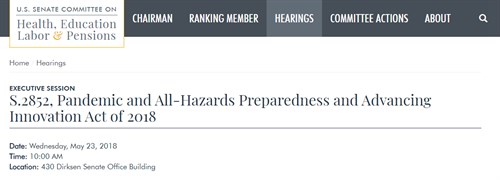In early January 2017, nine veterinary students represented Texas A&M University at the 65thInternational Veterinary Students’ Association (IVSA) Special General Assembly and Symposium at North Carolina State University in Raleigh, North Carolina. The nine Texas A&M representatives, Branden Nettles, Laura Hurst, Tony Blanco, Chandani Bahkta, Jillian Athey, Jivanni Shah, Jannina Saastamoinen, Selina Zalesak, and Taylor Strange, were among 113 veterinary students from across the globe who gathered to learn about the IVSA and the opportunities the organization offers. Travel funding for the Texas A&M students were provided by several entities including the Texas A&M One Health Initiative.
“Since the IVSA is an organization of veterinary students from a diverse array of 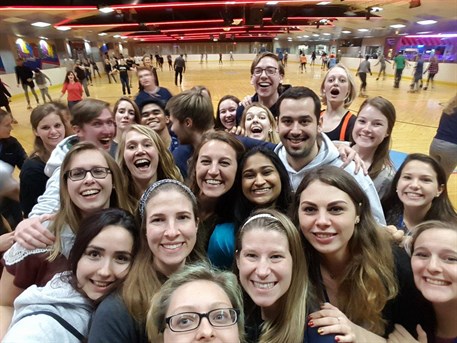 countries, we discussed veterinary medicine with colleagues who have had an education different from our own,” the Texas A&M representatives said of their experience. “With how globalized our profession is becoming, hearing from colleagues with these fresh perspectives was one of the best opportunities we were given. We also had the chance to get a behind the scenes tour of a sea turtle rescue, explore the North Carolina aquarium, practice novel technical skills, and have some fun with a trip to a roller rink. One of the favorite nights of the IVSA event was cultural night, where students wore outfits from their country and brought food and drinks to share. This was a unique way to see the similarities/differences in cultures around the world, and have a good time with our new friends.”
countries, we discussed veterinary medicine with colleagues who have had an education different from our own,” the Texas A&M representatives said of their experience. “With how globalized our profession is becoming, hearing from colleagues with these fresh perspectives was one of the best opportunities we were given. We also had the chance to get a behind the scenes tour of a sea turtle rescue, explore the North Carolina aquarium, practice novel technical skills, and have some fun with a trip to a roller rink. One of the favorite nights of the IVSA event was cultural night, where students wore outfits from their country and brought food and drinks to share. This was a unique way to see the similarities/differences in cultures around the world, and have a good time with our new friends.”
The IVSA is a non-profit organization led by volunteer veterinary students from around the world. Their aim is to improve the standard of veterinary education internationally through the exchange of ideas, knowledge, and culture; ultimately pursuing their mission of benefiting the animals and people of the world by harnessing the potential and dedication of veterinary students to promote the international application of veterinary skills, education, and knowledge. Specific IVSA opportunities presented at the symposium included participating in international student exchanges, helping to raise funding for veterinary students in low gross domestic product areas, and making connections from all over the world.
“The week we spent at the IVSA conference changed our lives,” the students reflected. ”From creating global connections within veterinary medicine, to seeing so many different languages popping up on Facebook, to having a deeper understanding of the world we live in, IVSA now has a place in all our hearts.”
For more information about the Texas A&M chapter of IVSA, please visit tx.ag/cWcvqjl.
For more information about the IVSA, please visit tx.ag/Pmoge8E.

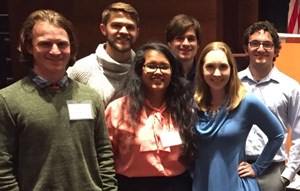
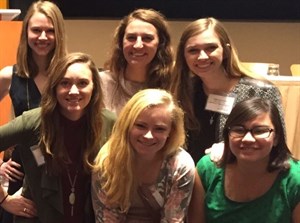 “It was valuable to meet with other veterinary students from around the country who are also interested in public health,” Tomaso said. “Most of my peers realize that our profession has a profound impact on animal health, but many don’t realize that impact extends to human and environmental health.”
“It was valuable to meet with other veterinary students from around the country who are also interested in public health,” Tomaso said. “Most of my peers realize that our profession has a profound impact on animal health, but many don’t realize that impact extends to human and environmental health.”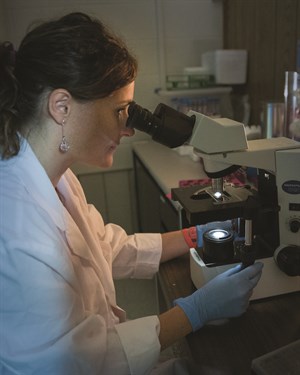 Kinsey initiated the project after hearing about Esteve-Gassent’s research to map the presence of ticks in Texas and to test for pathogens the ticks may be carrying, such as Lyme disease and Rocky Mountain spotted fever.
Kinsey initiated the project after hearing about Esteve-Gassent’s research to map the presence of ticks in Texas and to test for pathogens the ticks may be carrying, such as Lyme disease and Rocky Mountain spotted fever.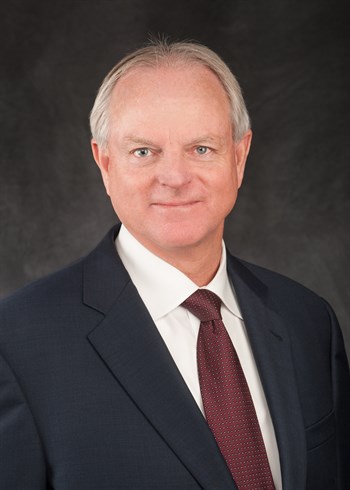 Associate Dean for Global One Health. The appointment is housed within the VMBS.
Associate Dean for Global One Health. The appointment is housed within the VMBS.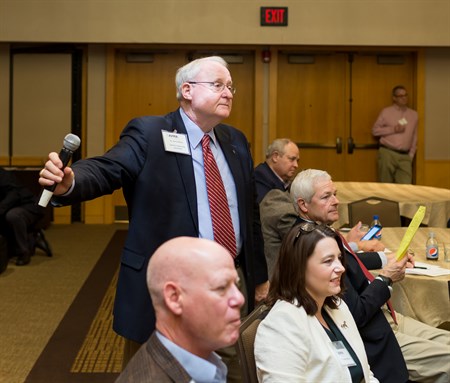 Dr. Garry Adams participates at the AVMA Global Food Security Summit. Photo courtesy of the American Veterinary Medical Association (AVMA)
Dr. Garry Adams participates at the AVMA Global Food Security Summit. Photo courtesy of the American Veterinary Medical Association (AVMA)
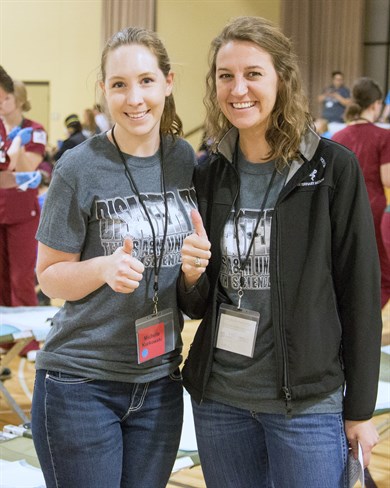 Thirty Texas A&M College of Veterinary Medicine & Biomedical Sciences (CVM) students sprang into action on March 30 as first-time participants in the College of Nursing’s annual Disaster Day, the largest student-run mass casualty simulation event in the country.
Thirty Texas A&M College of Veterinary Medicine & Biomedical Sciences (CVM) students sprang into action on March 30 as first-time participants in the College of Nursing’s annual Disaster Day, the largest student-run mass casualty simulation event in the country.
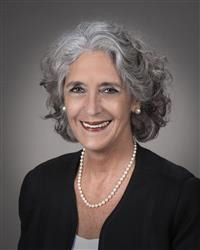 Rosina (Tammi) C. Krecek, a research professor in Global One Health in Texas A&M’s College of Veterinary Medicine & Biomedical Sciences (CVM), was featured on the news page of the national One Health Initiative website.
Rosina (Tammi) C. Krecek, a research professor in Global One Health in Texas A&M’s College of Veterinary Medicine & Biomedical Sciences (CVM), was featured on the news page of the national One Health Initiative website.
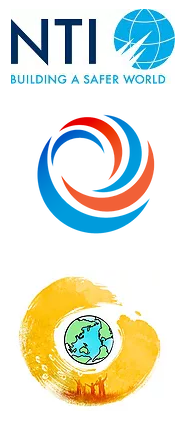 Don’t miss out on this exciting opportunity to share your ideas, contribute to the global biosecurity strategy, and attend the 5th Annual High Level Global Health Security Ministerial Meeting in Bali, Indonesia.
Don’t miss out on this exciting opportunity to share your ideas, contribute to the global biosecurity strategy, and attend the 5th Annual High Level Global Health Security Ministerial Meeting in Bali, Indonesia.